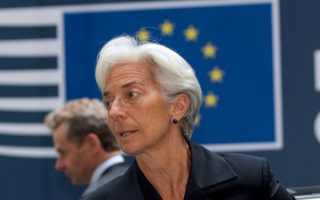Creditors are the main culprits in the Greek crisis

Greece’s economic crisis is uniquely deep – deeper than the Great Depression of the last century – because Greece’s creditors have been uniquely unhelpful in resolving the crisis.
The Greek government is insolvent, a point that has been clear for several years. Yet Greece’s creditors have managed the crisis for the sake of their own local and short-term politics (mainly with an eye on local elections), not for the purpose of actually resolving it. Here we have a case of common knowledge that is spoken everywhere and in every medium except that of polite European politics.
The Tsipras government, after an appropriately fiery start on the debt issue, has long since played along, thereby avoiding the wrath of Greece’s creditors but also failing to resolve the crisis.
The basic facts are (again) well summarized by the recent International Monetary Fund Article IV report. As the Staff Report notes: “Even with these ambitious policies in place, Greece cannot grow out of its debt problem. Greece requires substantial debt relief from its European partners to restore debt sustainability.”
The data in the IMF report are both stark and frightening. The external debt as a share of GDP rose from 188.2 percent in 2011 to 245.7 percent (projected) in 2016. The overhang of debt has been accompanied by a nearly continuous banking crisis and credit squeeze, and a shocking liquidity crisis in July 2015 that was occasioned by the freezing of European Central Bank emergency liquidity around the time of the referendum.
The need for deep debt relief is nearly ubiquitously acknowledged, but nonetheless it is not implemented. Greece’s debt service has indeed been postponed but it has been recapitalized into later payments. Some real relief has been granted, notably by private creditors, but not at all in the magnitude commensurate with restoring Greece’s solvency.
The Greek debt owed in particular to the official creditors remains on the books, mostly because a number of European creditor governments do not want to acknowledge the truth – or perhaps because of the not-so-hidden hope of some that Greece will eventually choose to leave the eurozone.
The approach of the Tsipras government to all this has been somewhat mystifying.
After winning the July 2015 referendum with the clear “No” vote, the government immediately capitulated to the creditor demands as if the referendum had not taken place. And though it has been the IMF first and foremost that has clearly declared the unsustainability of Greece’s debts, the IMF remains the favorite whipping boy of the government in Athens, distracting attention from the recalcitrance of Greece’s creditors.
Yet the real political and moral responsibility at this stage of the crisis lies overwhelmingly with the creditors, not with the broken and insolvent debtor. That is the lesson of financial history. It’s time for Greece’s suffering to end, and the creditors need to take the lead.
* Jeffrey Sachs is a professor and director of the Center for Sustainable Development at Columbia University.





